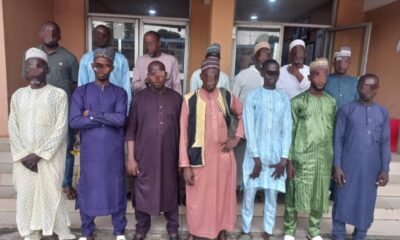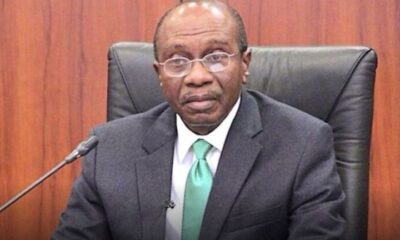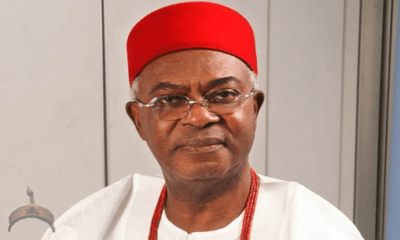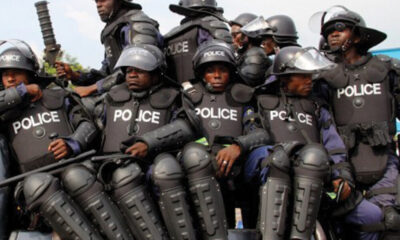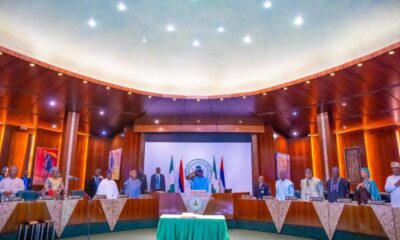News
Where are Akali, Ade-John, Musawa, and Other Tinubu Ministers?

As President Bola Tinubu approaches one year in office in the next 30 days, expectations and criticisms abound. One area where Nigerians hope for a change from his predecessor, Muhammadu Buhari, is in Human Resources Management. Tinubu’s administration boasts the largest federal executive council in recent history with 50 ministers. However, many of these ministers have maintained a low profile since their appointments.
As Tinubu’s tenure hits the one-year mark, NewsNow’s overview touches on his policies and manifesto promises under the renewed hope agenda. The spotlight is also on ministers who have been notably quiet since assuming office in August 2023.
The President’s campaign emphasis on being a superior “people” manager, echoed by former Governor Babatunde Fashola comparing him to a hands-on coach, stands juxtaposed to Buhari’s hands-off management style.
One glimmer of hope for Nigerians came with the establishment of the Hadiza Bala-led committee tasked with evaluating ministerial performance, a departure from Buhari’s administration where some ministers served eight years without significant impact. However, scrutiny reveals a concerning trend of inactivity among some ministers since their appointment.
Sa’idu Akali (Transportation)
The Minister of Transportation, Akali, has maintained a notably low profile compared to his predecessor, Rotimi Amaechi. Despite overseeing key sectors like railway transportation, Akali’s communication with the public, especially regarding ongoing projects, remains scant, fueling speculations about stalled initiatives from the previous administration.
Lola Ade-John (Tourism)
Ade-John, whose background leans towards IT and finance, was unexpectedly assigned the Ministry of Tourism. The President’s strategy of deploying financial experts in critical sectors for effective resource management is evident in this decision. However, little information has emerged on Ade-John’s activities, particularly regarding the promised establishment of a media city to rival Dubai’s.
Hannatu Musawa (Minister of Culture)
The Minister of Culture grapples with establishing her agenda for the sector. Apart from a recent retreat by the ministry, there’s a lack of clarity on key cultural and tourism initiatives under Musawa’s leadership.
Ibrahim Gaidam/Imaan Suleiman-Ibrahim (Police Affairs)
Amidst heightened calls for police reform and internal security enhancement post-EndSARS protests, the Minister of Police Affairs has been notably inactive. The lack of substantial progress in police reforms coupled with unresolved citizen-police conflicts raise concerns about law enforcement efficiency.
Uche Nnaji (Innovation, Science, and Technology)
Despite almost a year in office, the Minister of Innovation, Science, and Technology, Uche Nnaji, remains relatively unknown to the public. This lack of visibility raises questions about his impact in advancing technological innovation in Nigeria.
Joseph Utsev/Muhammed Goronyo (Water Resources)
The Ministers of Water Resources, Utsev, and Goronyo have kept a low profile since their appointment, with minimal information on the ministry’s strategic direction. Nigerians await tangible plans and initiatives from these officials to address water resource challenges.
Jamila Bio Ibrahim (Youth)
The Minister of Youth, Jamila Bio Ibrahim, like her counterparts, has maintained a quiet stance on her plans for empowering Nigerian youth. Clarity on her proposed youth-centric initiatives remains elusive.
Ekperikpe Ekpo (Gas)
President Tinubu’s vision for a gas-focused economy encounters uncertainties as the Minister of State for Gas operates with limited public engagement. The timely execution of gas-related policies and projects remains unclear under Ekpo’s leadership.
Gboyega Oyetola (Marine and Blue Economy)
Appointed to oversee the Marine and Blue Economy sector, Gboyega Oyetola’s tenure has been relatively quiet, prompting public curiosity about the ministry’s activities. Despite his reputation as a reserved leader, Nigerians seek more transparency and updates on the ministry’s initiatives.

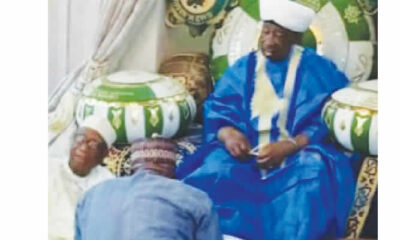
 News4 weeks ago
News4 weeks agoDevelopment of Kwara Smart City Continues as Government Acquires 20,065 Hectares

 Business4 weeks ago
Business4 weeks agoExpert Predicts Naira’s Strengthening Will Impact Inflation in Coming Months

 Politics4 weeks ago
Politics4 weeks agoAlleged Suspension of Ganduje Raises Concerns Among APC Members

 Politics4 weeks ago
Politics4 weeks agoThe Open Government Partnership Committee is established in Kogi

 Business4 weeks ago
Business4 weeks agoDespite Naira Appreciation, Prices Surge in Nigeria

 Business1 month ago
Business1 month agoNigeria Faces 40.01% Surge in Food Inflation in March, According to NBS
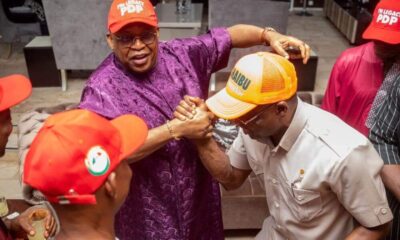
 Politics2 weeks ago
Politics2 weeks agoPhilip Shaibu Returns To PDP Group He Helped Obaseki Take Party From

 Business3 weeks ago
Business3 weeks agoThe Depreciation of Naira Against Dollar – Insights From BDC Operators
